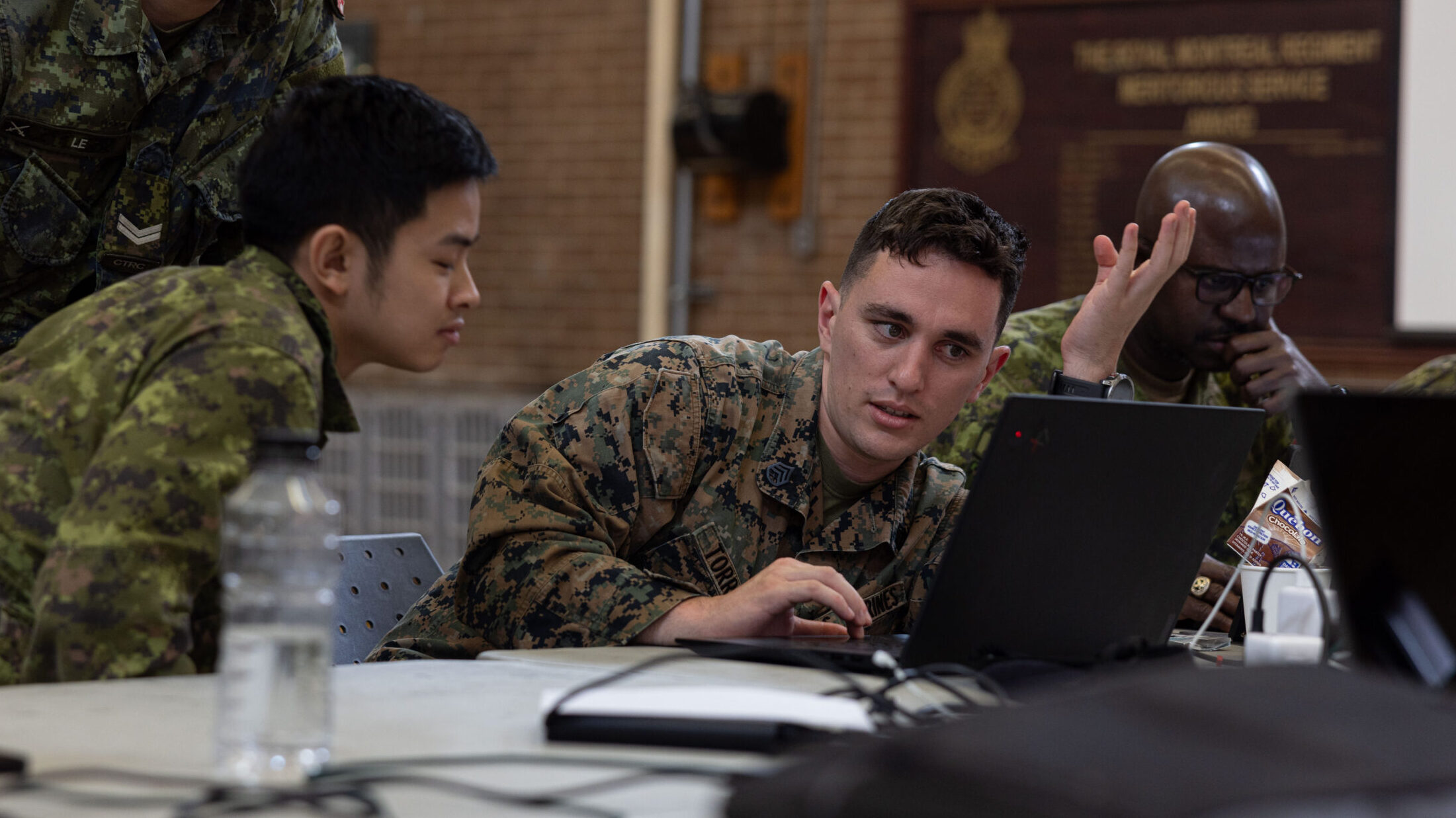
U.S. Marine Corps Staff Sgt. Michael Torres (center right), data systems administrator, Defensive Cybersecurity Operations, Company A, 6th Communication Battalion, Marine Forces Reserve, discusses his network hacking plan with Canadian Army service members during Cyber Harmony 24 at The Royal Montreal Regiment, Quebec, Canada, April 28, 2024. (Photo by Lance Cpl. Juan Diaz / Marine Forces Reserve)
NATO EDGE 2024 — At a time when leaders from NATO countries and their allies are striving to share more data more securely, the Pentagon and the Canadian Armed Forces announced that they achieved federated identity, credential and access management (ICAM) connection between their armed forces in a joint pilot program.
It’s a relatively small step, but Ross Ermel, the defense chief digital officer for the Canadian Armed Forces said this week that when he and his team “took this to the warfighting use case — I’ll just keep it general for now — and they realized what they could do now that they could log on and share, eyes were open. It was a light bulb moment.”
ICAM, which has been adopted in recent years throughout the US Department of Defense, is a system that ensures users are who they say they are and determines what they have access to when logging on to information systems.
With this federated, or in other terms shared connection, users in the US and Canada were able to securely access the other country’s data on an existing platform that they share, Pentagon acting chief information officer Leslie Beavers said today during a panel discussion. (Beavers did not specify the specific platform used in the pilot.)
“Identity management enables those two, those clouds, people within those clouds, organizations, equipment within those clouds, to trust each other and work together,” Beavers said. Adding that “it is key to unlocking the modern capability that we all crave within our Department of Defenses and our alliances.”
Beavers said that when she was in the US Air Force she often couldn’t connect to the systems she needed to, and those experiences inspired her to bolster interoperability not only within the DoD but also with foreign allies.
“I couldn’t understand why as an Air Force member, when I traveled around to a number of different locations […] nothing would work, and it drove me nuts. So that is why I’m extremely passionate about taking on these foundational challenges and getting them solved, and solving these problems is through cooperation,” she said.
Such cooperation, Beavers said, was made possible through her work with Ermel.
“If we can’t talk and we can’t trust each other, nation to nation, entity to entity, we truly don’t have that interoperability that we seek in the future,” he said, adding that such ICAM interoperability is “absolutely vital.”
Now that the US and Canada have achieved federated ICAM connection with each other, Beavers said the next step is to expand this capability to all of NATO countries and other allies.
“We’re starting really small [with the] US and Canada. We’re writing the recipe, the playbook, the technology piece, the policy piece. We’re going to then try and scale it to 32 [nations] and then to take it beyond to other allies and partners, but we need everybody’s help,” she said. “I just would ask everyone to focus a little bit on the mundane, and let’s get this problem solved, and that will unleash the power of NATO.”






















